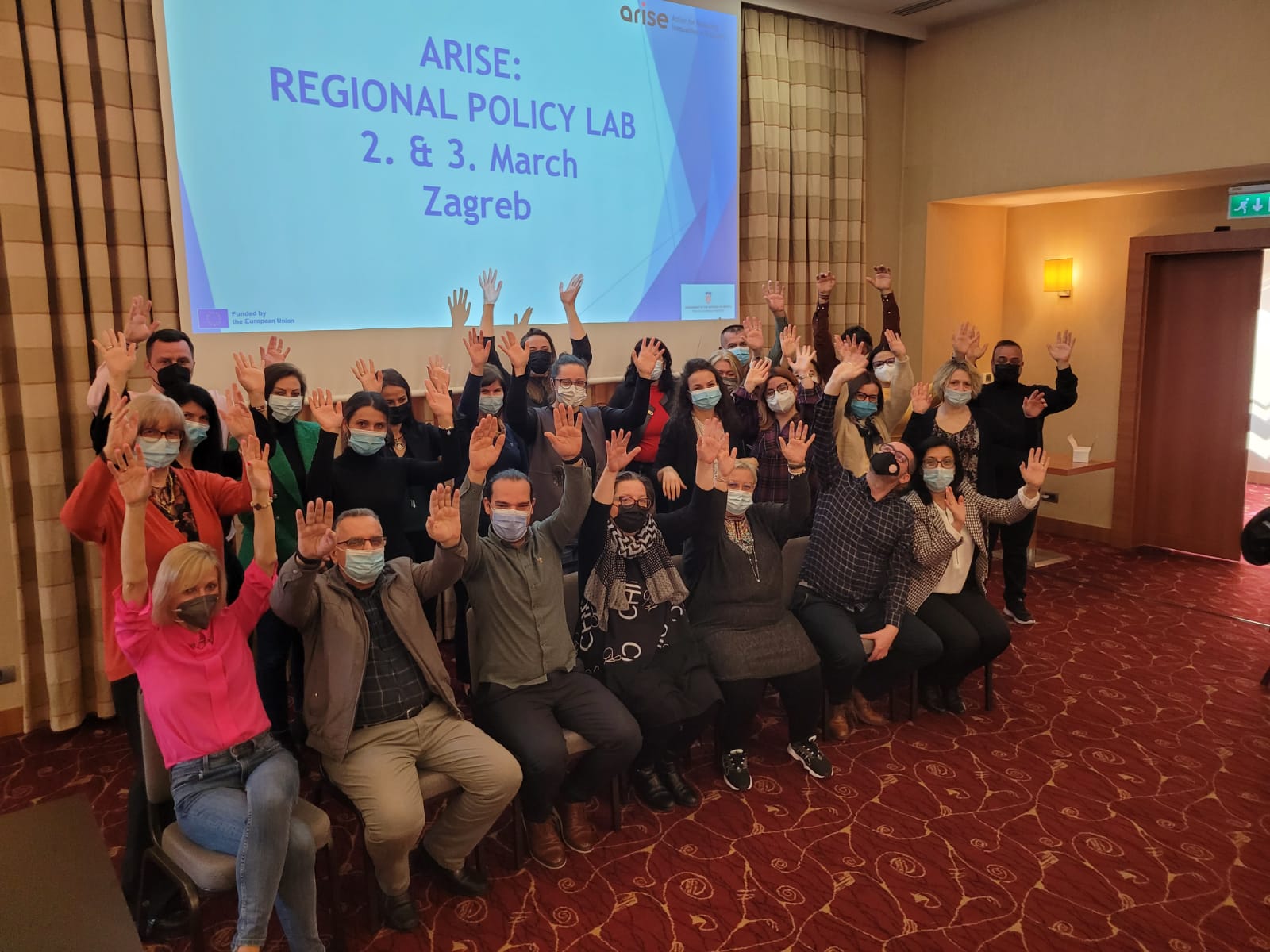Important segment of the ARISE project policy dimension was Regional Policy Lab held in Zagreb on 2nd and 3rd March 2022.

Regional Policy Lab consisted of two elements: learning sessions and policy solution generating session. Rationale behind the event was to gather policy makers, policy analysts and practitioners from the project implementing countries (Albania, Bosnia and Herzegovina, Kosovo, North Macedonia, Serbia, Turkey) to participate in the lectures, discussions and national policy road map development that will contribute to and support students from low socio-economic status (SES).
Learning to support learners
Learning sessions were based on the four lectures approaching the topic of supporting the students from low SES background from different perspectives.
Ivana Ceranic from Centre for Education Policy (CEP) presented the main findings from the ARISE Comparative report, underlining once again the issues related to students from low SES in participating countries and to demonstrate what can be done to support all students, regardless of their SES or any other background.
Ivana Ceneric from Centre for Education Policy (CEP) presented the main findings from the ARISE Comparative report, underlining once again the issues related to students from low SES in participating countries and to demonstrate what can be done to support all students, regardless of their SES or any other background.
Olja Druzic Ljubotina from University of Zagreb addressed challenges in synergies of social and educational policies in regard to poverty, with special reflection from the children living in poverty on the obstacles and opportunities they are facing.
Lana Jurko from Network of the Education Policy Centers (NEPC) introduced the policy dimension and elaborated the National Policy Road Maps structure and the importance of the development process and involvement of all relevant stakeholders connected to the policy goal set.
Paul Gorski from the Equity Literacy Institute (ELI) elaborated the social policies that support schools to better address the socioeconomic disadvantages and put the emphasis on the importance of embracing the equity ideology instead of deficit or grit ideologies.
Mapping the way towards the change
Second part of the Regional Policy Lab was dedicated to generating the policy solutions for addressing the urgent issues regarding poverty and support to low SES students in the implementing project countries.
In order to maximize the impact on policy and, therefore on the systematic national level, project partners have beforehand established National Policy Coalitions (NPC) in their countries. NPCs are platforms for knowledge-sharing and cooperation with ultimate aim to engage and connect the main educational stakeholders dealing with the issue of poverty and supporting low SES students. Before participation in the Regional Policy Lab, NPCs have set the policy goals they intend to address during the project lifetime and beyond.
At the event, national teams were working on setting the policy goals by developing the national Policy Road Maps – tool that will help them achieve set policy goal by dividing it into segments and steps and developing and planning each element before taking actions.
Project partners will continue to work on further developing Policy Road Maps and achieving the set policy goal with the National Policy Coalition in their countries.
The policy goals we are trying to achieve are:
- Improving efficiency of support to families and children on local level by establishing local intersectoral teams;
- Increasing the capacity of the school and school team for the inclusive school climate and increasing the active involvement of all parents in children’s education, decision making process and school life, with special focus on supporting low SES parents;
- Advancing policies to address the needs of low SES children;
- All children have necessary school readiness and entry level competencies, attitudes and habits at school enrolment;
- Access to quality preschool programs;
- Raising awareness on inclusive education and ensuring equal access to education system to all children
